#Curtiss SOC Seagull
Explore tagged Tumblr posts
Text

Hydravion de reconnaissance Curtiss SOC-1 Seagull de l'US Navy – 2 juillet 1939
©Naval History and Heritage Command – 80-G-5885
#WWII#ww2#avant-guerre#pre war#marine américaine#us navy#aviation militaire#military aviation#avion de reconnaissance#reconnaissance aircraft#hydravion#floatplane#observation seaplane#curtiss soc seagull#soc seagull#02/07/1939#07/1939#1939
37 notes
·
View notes
Text
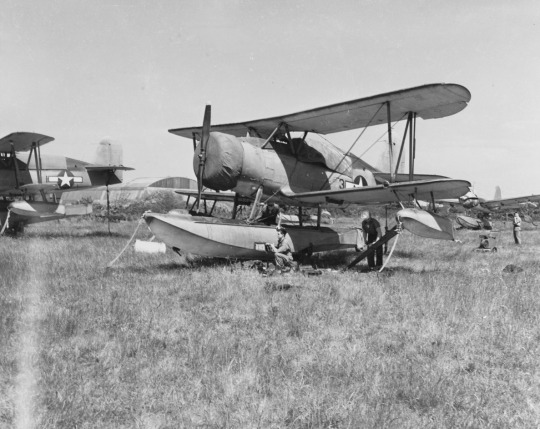
"Curtiss SOC Seagull scout-observation aircraft, of Cruiser Scouting Squadron Seven (VCS-7) Beached at an English airfield, while VCS-7 was flying the higher-performance British Spitfire fighters to spot naval gunfire during the Normandy Landings, circa June 1944. Another SOC and a Vought OS2U are parked in the background. Squadron maintenance personnel are servicing the planes to keep them available for sea duty."
Date: June 1944
U.S. Naval History and Heritage Command: 80-G-302116
#Curtiss SOC Seagull#SOC#Floatplane#Vought OS2U Kingfisher#OS2U#United States Navy#U.S. Navy#US Navy#USN#Navy#World War II#World War 2#WWII#WW2#WWII History#History#June#1944#VCS-7#my post
77 notes
·
View notes
Text
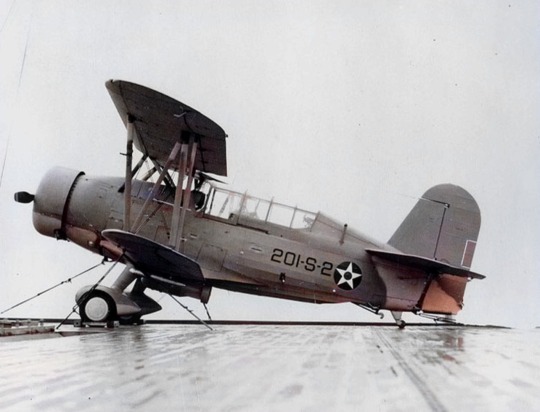
Seagull SOC-3A from VS-201 onboard the carrier USS Long Island photographed on 16 Dec. 1941
#Curtiss#SOC-3A#Seagull#scout plane#observation aircraft#Biplane#Curtiss-Wright#US Navy#vintage aviation#flight deck#airplane
152 notes
·
View notes
Text
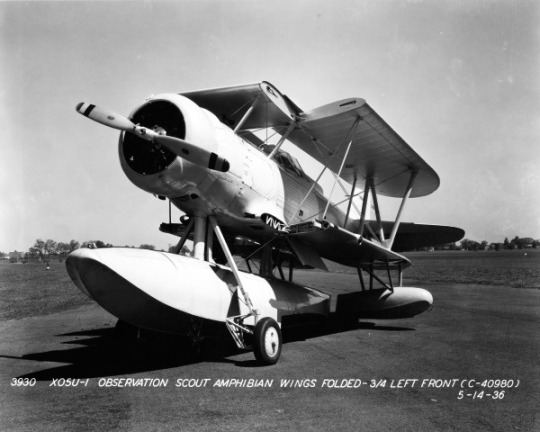
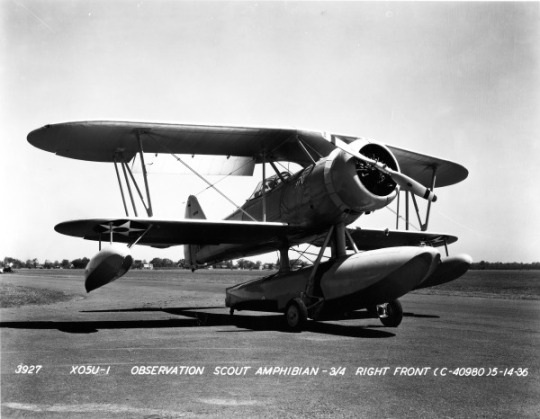
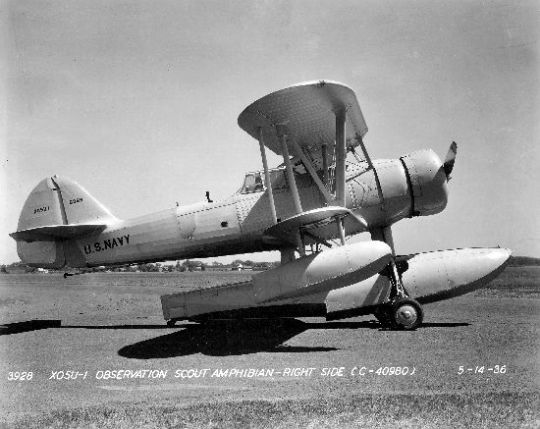
The Vought XO5U-1 (BuNo 9399) parked on land. "The United States Navy contracted three companies to produce prototypes to meet a requirement for a catapult launched biplane, with a central float and folding wings. Douglas produced the XO2D-1, Curtiss the XO3C-1 and Vought the XO5U-1. It was powered by a single Pratt & Whitney R-1340-12 piston engine and first flew on May 8, 1934." It lost to the Curtiss O3C-1, which became the Curtiss SOC Seagull.
Date: May 14, 1936
SDASM Archives: 40959541, 40959528, 00028776
65 notes
·
View notes
Text

Curtiss SOC Seagull loaded with a depth charge, USS Philadelphia
@ron_eisele via X
16 notes
·
View notes
Text

Passenger of SOC Seagull aircraft dropping a message capsule over cruiser Augusta during Operation Torch, North Africa, November 1942.
The Curtiss SOC Seagull, an American single-engined scout observation seaplane,
was designed for the United States Navy and entered service in 1935.
It was primarily used on battleships and cruisers, launching from catapults and landing on water, with foldable wings for storage.
A variant, the SON-1, was also produced by the Naval Aircraft Factory.
Although initially replaced by the Vought OS2U Kingfisher,
the SOC returned to frontline service in 1943 due to the failure of its intended successor, the SO3C Seamew.
The SOC continued to perform observation and scouting missions throughout World War II and even into the late 1940s in certain roles.
This marked a unique instance in aviation history where an older aircraft type successfully replaced its newer, intended successor.
0 notes
Photo

Curtiss SOC Seagull. Scout observation AC. Type first flew in 1934. Being recovered by USS Minneapolis
12 notes
·
View notes
Photo

1936 Curtiss SOC-3 Seagull
113 notes
·
View notes
Photo

“USS Denver (CL-58) enters Havannah Harbor, Efate, New Hebrides, as seen from USS Columbia (CL-56) on 22 April 1943. Note the Curtiss SOC Seagull floatplane in the right foreground, and the worn paintwork on Denver's hull, forward and amidships, with apparently fresh paint further aft.
Official U.S. Navy Photograph #80-G-384393, now in the collections of the National Archives.”
(Source)
#Military#History#USS Denver#Light cruiser#SOC Seagull#Floatplane#Aircraft#United States Navy#US Navy#WWII#WW2#Pacific War#World War II
36 notes
·
View notes
Video
Curtiss SOC-1 Seagull BuNo 9898 by Batman_60
3 notes
·
View notes
Photo

Vol en formation des 4 hydravions de reconnaissance Curtiss SOC-3 ‘Seagull’ du croiseur lourd USS Portland (CA-33) – 1944
© U.S. Naval History and Heritage Command Photograph - NH 81996
#WWII#marine américaine#US Navy#Avion de reconnaissance#reconnaissance aircraft#Hydravion de reconnaissance#reconnaissance floatplane#Hydravion#floatplane#Curtiss SOC Seagull#uss portland (ca-33)#uss portland#ca-33#1944
74 notes
·
View notes
Text

A Curtiss SOC Seagull landing near USS Maryland (BB-46) on October 26, 1938.
Dennis M. Ogawa Nippu Jiji Photograph Collection
Densho Digital Respository: ddr-njpa-13-120
#USS Maryland (BB-46)#USS Maryland#Colorado Class#Battleship#Dreadnought#warship#ship#October#1938#interwar period#united states navy#us navy#navy#usn#u.s. navy#my post
17 notes
·
View notes
Text

Worker posing with a Curtiss SOC Seagull during a publicity shot, circa early 1940s.
wawstl: link
17 notes
·
View notes
Text

A Mark XVII Depth Bomb (325 pounds) is removed from the port wing rack of a Curtiss SOC Seagull scout-observation aircraft on a catapult on USS Philadelphia (CL-41), 2 July 1942. #WWII #WW2
@WW2HQ via X
13 notes
·
View notes
Photo

The Curtiss SOC Seagull was an American single-engined scout observation seaplane, designed by Alexander Solla of the Curtiss-Wright Corporation for the United States Navy. The aircraft served on battleships and cruisers in a seaplane configuration, being launched by catapult and recovered from a sea landing. The wings folded back against the fuselage for storage aboard ship. When based ashore or on carriers the single float was replaced by fixed wheeled landing gear.
Curtiss delivered 258 SOC aircraft, in versions SOC-1 through SOC-4, beginning in 1935. The SOC-3 design was the basis of the Naval Aircraft Factory SON-1 variant, of which the NAF delivered 64 aircraft from 1940.
https://en.wikipedia.org/wiki/Curtiss_SOC_Seagull
0 notes
Photo

Curtiss SOC “Seagull“
2 notes
·
View notes
